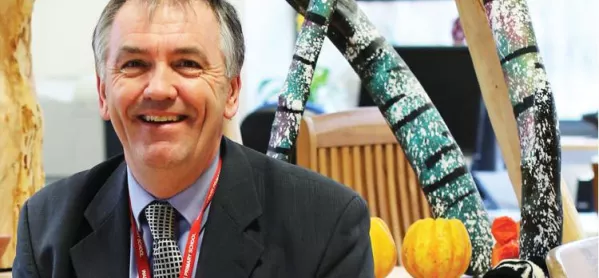Recently I was invited back to a school I had left over 35 years ago. Teachers and pupils were digging up a time capsule we had placed in the ground as the foundations were being laid for a new classroom.
The capsule contained all the stuff you’d expect - coins, newspaper, photographs - and other less predictable items - my moustache (they were in fashion, honest) - which the children thought would be a good idea. But what was really interesting were the timetables and the records of what kids thought of school life at the time.
One word dominated these comments: fun.
If we were to undertake the same exercise in schools today, do you think “fun” would be the predominant adjective?
At the moment, our schools seem totally consumed by achieving “outcomes”, and, as a result, too many have forgotten that “play” and “creativity” are crucially important. In many schools, a creative approach can only be embraced in Reception class.
Our children deserve so much more. We need to develop their imagination, their dramatic skills and creativity; we need to ensure they know how to explore and develop a love for the outdoors. We won’t achieve this by staring at data.
These aspects of a child’s development are crucial for their wellbeing. Through play, children learn to express and control themselves and their emotions, they develop social skills, take on leadership roles and, of course, develop their imagination. Undoubtedly play enhances their communication skills and improves their concentration.
And yet we allow for so little of it.
‘Schools offer little fun and even less risk’
Too many schools - due to the constraints of results, their local authority or their multiple-academy trust, or due to fear of Ofsted - have become boring and soulless establishments offering little fun and even less risk.
Many of the problems that manifest themselves later at late junior and early secondary phases are due to the insufficient opportunities we have given our children to develop their emotional intelligence through play and creative opportunities when younger.
Play and creativity need to permeate all levels of our system. Surely if learning is memorable and inventive then our children will certainly think and behave differently.
They may even remember their school 35 years later…
Colin Harris led a school in a deprived area of Portsmouth for more than two decades. His last two Ofsted reports were ‘outstanding’ across all categories
To read more of Colin’s articles, visit his back catalogue
Want to keep up with the latest education news and opinion? Follow Tes on Twitter and like Tes on Facebook




